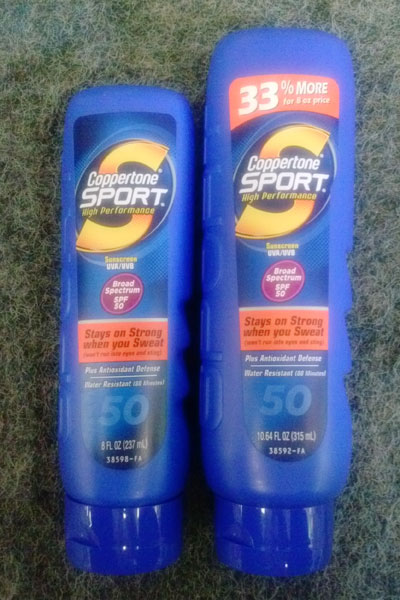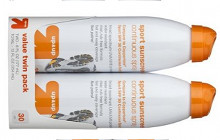Natalia noticed two bottles of sunscreen side by side at CVS. Initially, it appeared that one was a great deal because it offered 33% more volume at the same price: sort of a reverse Grocery Shrink Ray. Turning the bottle over, though, she read that the bottle had a little less of each of the effective ingredients: about 10% less by volume than the smaller bottle. Doesn’t that mean you have to use more sunblock to get the same effect? [More]
sunblock

If European Sunscreens Are So Great, Why Can’t We Buy Them In The U.S.?
As someone with skin that basically ignites upon contact with the sun’s rays, I’m always looking for a better sunscreen to aid me in my battle against the inevitable sunburn. Recently I heard about a product that was anecdotally called “miraculous,” but couldn’t find it in U.S. stores. I bought it from a British retailer online, and subsequently want to marry it. So if there are such great sunscreens in Europe and elsewhere, how come we can’t get them in the U.S.? [More]
../..//2009/07/07/tired-of-big-sunscreen-profiting/
Tired of Big Sunscreen profiting from your love of the outdoors? Instructables shows you how to make your own sunscreen, with a few fun ingredients and some safety equipment. Alternately, sunscreen-ify your favorite premade lotion by adding zinc oxide or titanium oxide. (Via Lifehacker)

Is Your Sunblock Effective?
Yesterday several news outlets published the results of a study that said “four out of five brand-name sunscreens either provide inadequate sun protection or contain chemicals that may be unsafe.” The report comes from the Environmental Working Group (EWG) and has been heavily criticized by sunblock makers, although their complaints are of the general sort (“they don’t understand sunblock!”) or vaguely hysterical (“they’ll convince people to stop using sunblock!”). We don’t know how valid the study ultimately is, but here are the basics—and regardless of the more sensational claims, their list of the best sunblocks may help you when choosing a product.



